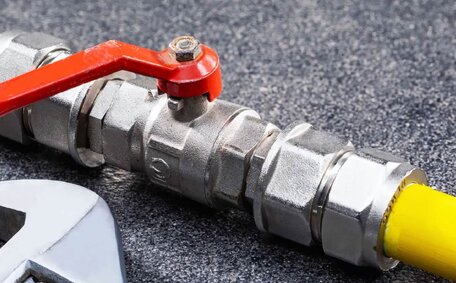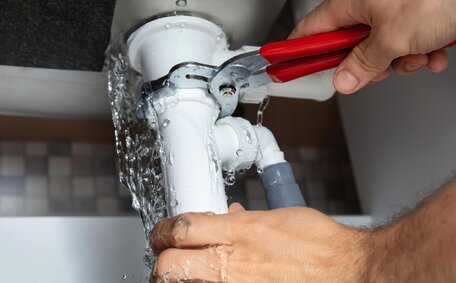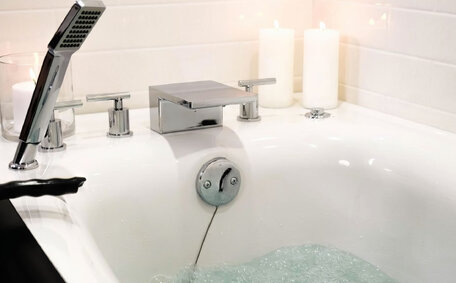Key Differences Between Natural Gas and Propane
When it comes to fueling appliances and equipment, natural gas, propane, and combinations thereof are popular options, though they exhibit some notable differences. This article outlines the primary distinctions between natural gas and propane in terms of chemical makeup, energy efficiency, pricing, environmental impacts, safety, and delivery.
Chemical Composition
Natural gas is a fossil fuel comprised primarily of methane as well as small amounts of other hydrocarbons like ethane, propane and butane. Propane, on the other hand, refers specifically to the liquor form, while compressed natural gas (CNG) is methane under high pressure.
Energy Efficiency
Propane achieves higher energy delivery efficiency compared to natural gas by volume and, being more compact in liquid state, offers storage and transportation benefits.
An equal volume of propane encapsulates approximately 2,500 BTUs, compared to natural gas’s 37 MJ per cubic meter.
Cost
The pricing difference between propane and natural gas is evident in affordability; natural gas typically proves more cost-effective for residential and commercial use. The average cost to heat a home with natural gas is approximately $10 per million BTUs, in contrast to propane’s $25 per million BTUs. Nonetheless, in rural areas lacking gas pipelines, propane may be more cost-effective.
Natural gas and propane are generally safe for your home when handled properly, but as flammable gases, leaks, accidents or misuse do pose risks. Key safety precautions for both involve adding an odorant called mercaptan for easy leak detection and ensuring appropriate storage, pipelines, equipment, and access to emergency shutoff valves.
Delivery Methods
Natural gas supply relies on an underground pipeline system straight to premises, whereas propane, crucial for residential heating, requires transport and on-site storage as liquid tanks, complicating its delivery and availability.
What is Natural Gas?
Natural gas, predominantly methane, is sourced from subterranean clusters and channelled to users through a widespread network of pipelines.
Propane provides a strong energy capacity in a more compact volume compared to natural gas’s 1,000 BTUs per cubic foot. This efficiency makes it ideal for heating, cooking, and various other applications.
A notable property of natural gas is that it burns cleanly, producing less carbon dioxide per unit of energy than other hydrocarbon fuels. An odorant called mercaptan is also commonly added to help detect gas leaks and improve safety. Overall, natural gas is valued as a versatile, abundant, and lower emission domestic fuel source.
What is Propane Gas?
Propane is a type of liquefied petroleum gas (LPG) that is commonly utilised for heating, cooking, and energising various equipment and appliances. Propane is produced during the processing of compressed natural gas (CNG) and the refining of crude oil.
Unlike natural gas, propane can be compressed into a form that can stored conveniently and transported in high-pressure tanks. This allows it to be trucked and delivered directly to homes, businesses and other facilities that use propane fuel.
Some key properties of propane include:
- It is heavier than air
- It has a higher BTU output per cubic foot than natural gas, providing a greater amount energy per unit volume
- It produces clean-burning flames making it efficient for stoves, furnaces, and more
- It has a distinct odour added to help detect leaks (ethyl mercaptan)
Energy Efficiency Comparison
Energy efficiency comparisons between natural gas and propane often focus on their BTU performance, with propane delivering greater energy intensity per volume, at roughly 93 MJ per cubic meter against natural gas’ 37 MJ.
The same volume of propane releases significantly more usable heat energy than natural gas when combusted. However, natural gas pipelines allow easy access while propane requires portable storage and delivery.
When choosing between these popular fuel options, considerations like upfront access, operating costs over time, equipment differences and safety issues also come into play along with straight BTU efficiency comparisons.
Cost Analysis
Upfront Costs
On contemplating natural gas versus propane for home appliances, initial outlays for propane can be heftier, given the requisites for tanks, installation, and permits. Conversely, existing natural gas lines direct costs mainly to appliance procurement.
Operating Costs
Upon reviewing ongoing fuel expenses, natural gas usually presents more affordability, with residential costs often undercutting those of propane.
Propane’s greater energy output per cubic foot equates to using less fuel for equivalent heat or cooking requirements. Basing cost estimates on actual appliance consumption provides a more accurate comparison.
Environmental Impact
Regarding environmental impact, both natural gas and propane are known for their both clean-burning characteristics, although natural gas emits less carbon dioxide and greenhouse gases per unit of energy produced. This confers a smaller carbon footprint, and it’s also noted for its lower emissions compared to other fuel sources.
Burning natural gas generates around 53 kilograms of CO2 per gigajoule, while propane emits 63 kilograms, although methane leakage can make natural gas marginally more costly environmentally.
As a nonrenewable gas, natural gas faces increased environmental scrutiny regarding its sustainability. Extracting and pipeline transportation also raise ecological concerns.
Proponents of propane cite its cleaner burn with reduced carbon monoxide and nitrogen oxides compared to other petroleum derivatives, yet it too is challenged by sustainability concerns as a fossil fuel.
Comparing these fuels in homes or businesses, awareness of leak implications assists in making informed and environmentally conscious choices.
Safety Considerations
Under proper management, natural gas and propane are widely considered safe, but their flammability means leaks or misuse necessitates stringent safety measures.
Some key safety considerations for natural gas and propane include:
- Adding odorants like mercaptan for easy gas leak detection
- Proper storage, piping, appliances and handling procedures
- Access to emergency gas shutoff valves
- Annual inspections by qualified technicians
- Flammable gas warnings posted
- Adequate ventilation for appliances
- Staff training on leak response
As natural gas is lighter than air, it rises and vanishes swiftly if leaked, whereas propane, being denser, accumulates in low areas, making immediate response and alerting emergency services vital.
By understanding the unique risks posed by these gases and following safety precautions, consumers can safely utilise both natural gas and propane.
Delivery and Infrastructure
For many suburban and rural properties without gas lines, propane can be the only option unless owners make a significant upfront investment in pipelines. The absence of infrastructure contributes to propane’s popularity in such areas, despite its higher fuel costs.
Making the Right Choice
In evaluating the best fuel option for your needs, consider the critical differences between natural gas and propane.
When pipeline infrastructure is in place, natural gas emerges as a cost-effective solution for applications such as water heating and cooking that demand significant energy.
While propane comes with a higher price tag for the raw fuel itself plus tank storage/delivery expenses, it offers benefits like portability, high BTU output, and independence from centrally-managed pipe grids to fuel appliances and systems in your home. This allows it to provide the required amount energy in areas without preexisting natural gas hookups or as a versatile supplemental fuel during outages.
Understanding all the key dimensions - from energy efficiency, operating costs over time, and environmental impacts through to safety protocols and delivery logistics - enables homeowners and business owners to determine if natural gas or propane better aligns with their priorities, infrastructure realities, and long term interests.
For tailored advice on the gas solutions best fitting your property, reach out to Mosman Plumbing by email or at 1300 349 338.






